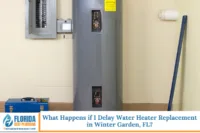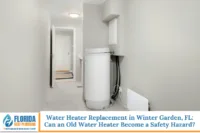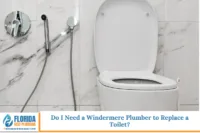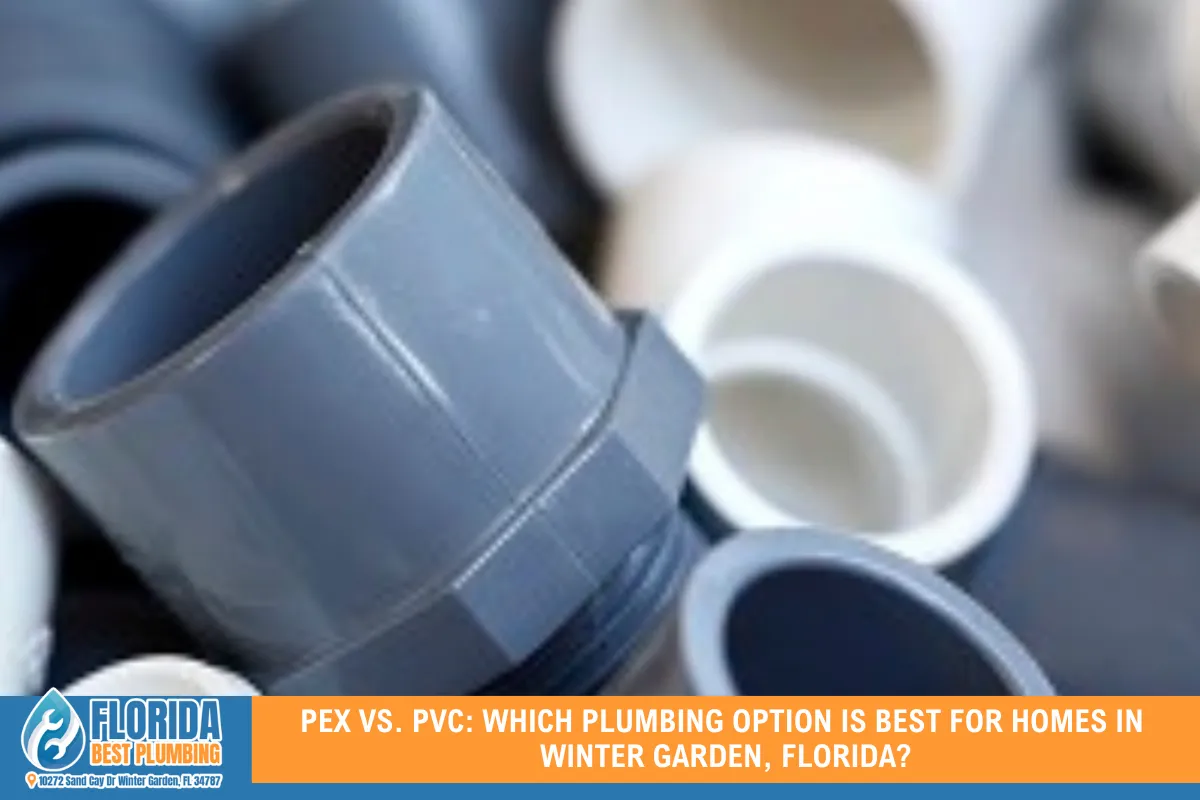
Plumbing systems in Winter Garden, Florida, face unique challenges due to the area’s humid climate, seasonal storms, and hard water. Choosing the right piping material is essential for homeowners looking to avoid costly repairs and ensure long-term durability. Two of the most commonly used materials in residential plumbing are PEX (cross-linked polyethylene) and PVC (polyvinyl chloride). Each has distinct advantages and limitations, especially in a Florida setting.
This in-depth guide will explore the differences between PEX and PVC, helping you make an informed decision that suits your home, your water needs, and your long-term maintenance goals.
Understanding PEX Plumbing: What It Is and Why It Matters
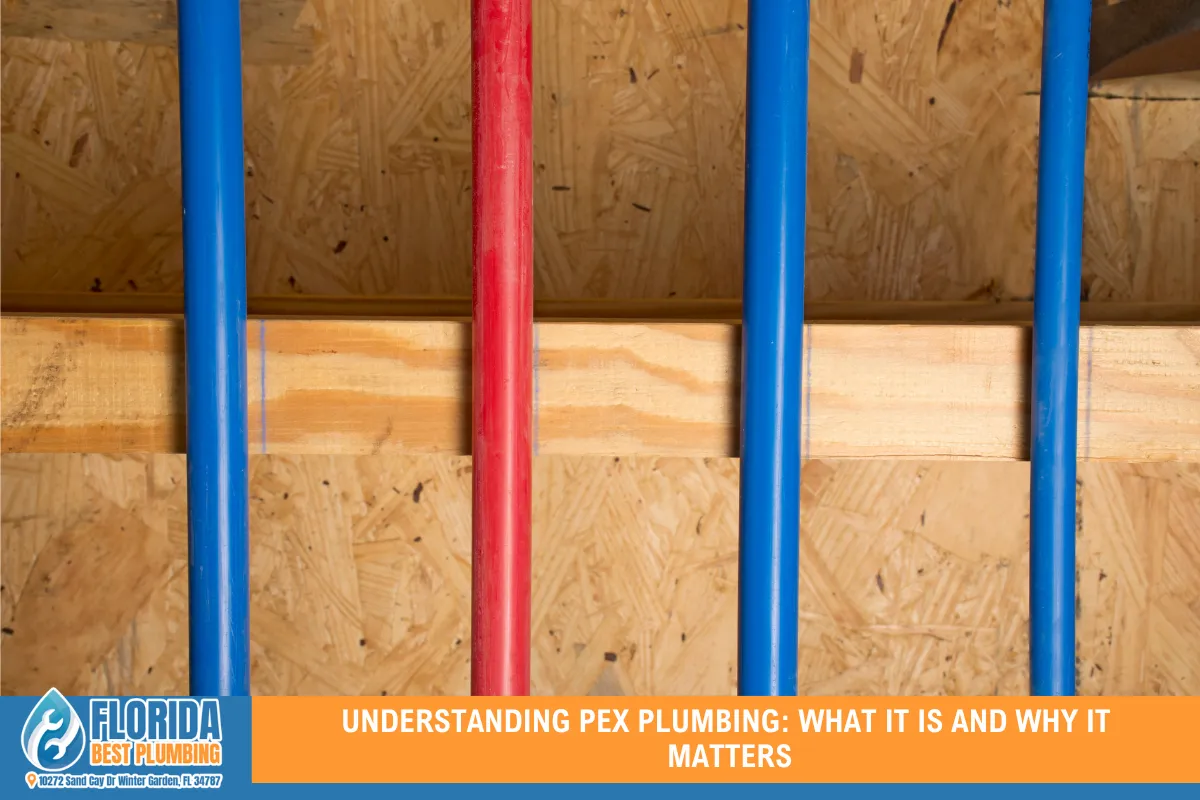
PEX, or cross-linked polyethylene, is a flexible plastic piping material that’s quickly becoming the go-to choice for modern plumbing systems in residential properties.
Unlike traditional metal or rigid pipes, PEX comes in rolls and can be bent easily around corners and obstacles. That flexibility allows for quicker installations with fewer fittings, which means fewer places for leaks to occur. It’s commonly used for hot and cold water supply lines. It is especially useful in retrofitting older homes or new construction.
Key Benefits of PEX:
- Flexibility: Bends easily around framing and through walls, reducing the need for extra joints.
- Temperature Tolerance: Can handle both hot and cold water with minimal risk of cracking.
- Expansion Capability: In rare instances of Florida’s cold snaps, PEX expands slightly without bursting.
- Corrosion-Resistant: Doesn’t rust or scale over time, even with hard water.
- Low Noise: Water flows more quietly through PEX compared to metal or rigid pipes.
In Winter Garden homes, where occasional temperature swings and mineral-heavy water are common, PEX offers both performance and peace of mind.
Defining PVC Plumbing: Where It Works Best and Its Limitations
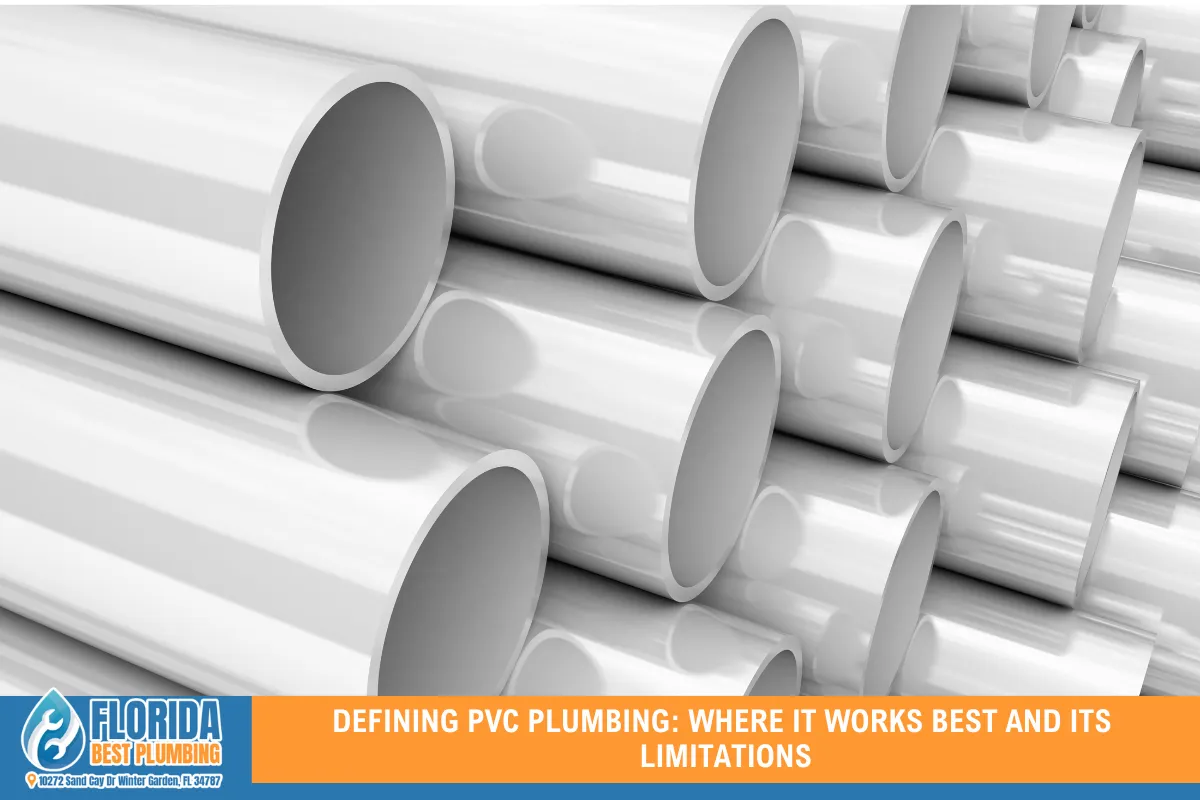
PVC, or polyvinyl chloride, is a rigid white plastic pipe traditionally used in drain, waste, and vent systems. Although it’s sometimes found in older cold-water systems, it’s no longer typically used for drinking water delivery due to its heat sensitivity and safety concerns.
PVC’s main selling point is affordability. It’s widely available and inexpensive, making it a solid option for non-pressurized plumbing applications.
Common Advantages of PVC:
- Inexpensive: Costs less per foot compared to PEX or copper.
- Corrosion-Free: Won’t corrode or rust like metal pipes.
- Chemical Resistance: Resists damage from household cleaning agents and waste byproducts.
- Easy to Work With: Lightweight and simple to cut and join with solvent cement.
That said, its rigidity means more fittings and elbows are needed to route it through a home. Additionally, PVC can become brittle over time, especially when exposed to direct sunlight or extreme cold, which is undesirable even in Florida’s typically warm environment.
Why Florida’s Climate Affects Your Plumbing Choice
Winter Garden, like much of Central Florida, has a humid subtropical climate. This means:
- Hot, sticky summers
- Mild winters with occasional cold fronts
- Heavy rains during hurricane season
- Higher groundwater tables in some neighborhoods
These local environmental conditions make the material choice more than a matter of price—it directly impacts how long your plumbing system will last and how well it will perform.
PEX handles humidity, fluctuating temperatures, and hard water better than most materials. PVC, while a good performer in drainage systems, doesn’t offer the flexibility or tolerance needed for pressurized supply lines in these conditions.
Comparing Installation: Labor, Tools, and Time
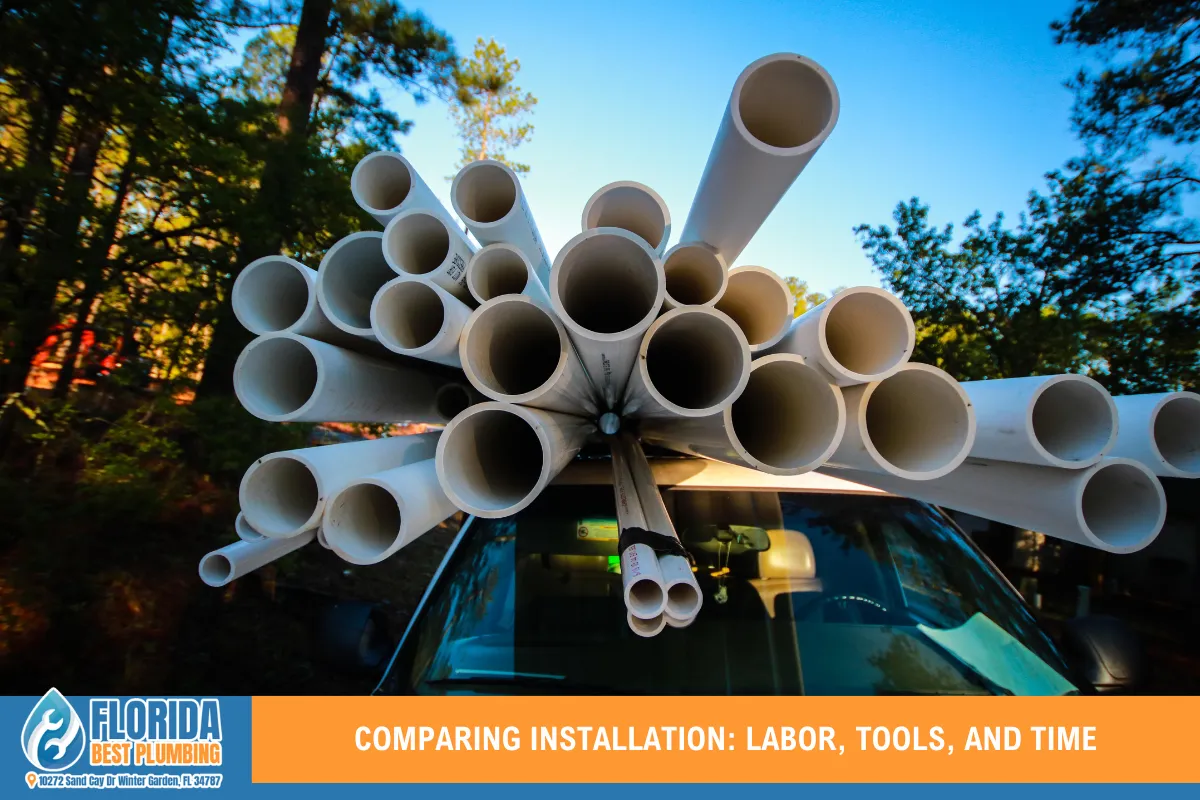
Installing PEX plumbing is straightforward. Since it’s flexible, you can run it in long, continuous loops from a central manifold to fixtures. This saves time, reduces the need for elbows and tees, and minimizes the potential for leaks. Fewer joints also mean fewer failure points in the future.
On the other hand, PVC is rigid. It has to be measured, cut, and glued precisely. Every change in direction needs an elbow or coupling. This adds time and complexity, especially in tight spaces.
Which Is Easier to Install?
- PEX: Flexible, requires special crimp tools, quick to set up
- PVC: Easy to cut but requires more fittings and time to cement properly
In terms of labor, PEX usually comes out ahead, especially in residential retrofits or full-home repipes.
Pressure and Temperature Resistance: The Real-World Test
PEX Performance:
PEX is rated for both cold and hot water, making it a versatile and reliable all-in-one solution for modern homes. It can withstand pressures up to 160 psi and temperatures up to 200°F. This makes it ideal for homes in Winter Garden with high water heater usage or fluctuating water pressure.
PVC Performance:
PVC can handle pressure, but isn’t suitable for hot water lines. It’s often limited to drainage systems or cold water applications only. Prolonged exposure to heat can weaken its structure, leading to cracks or failures.
Longevity and Durability: Which One Lasts Longer?
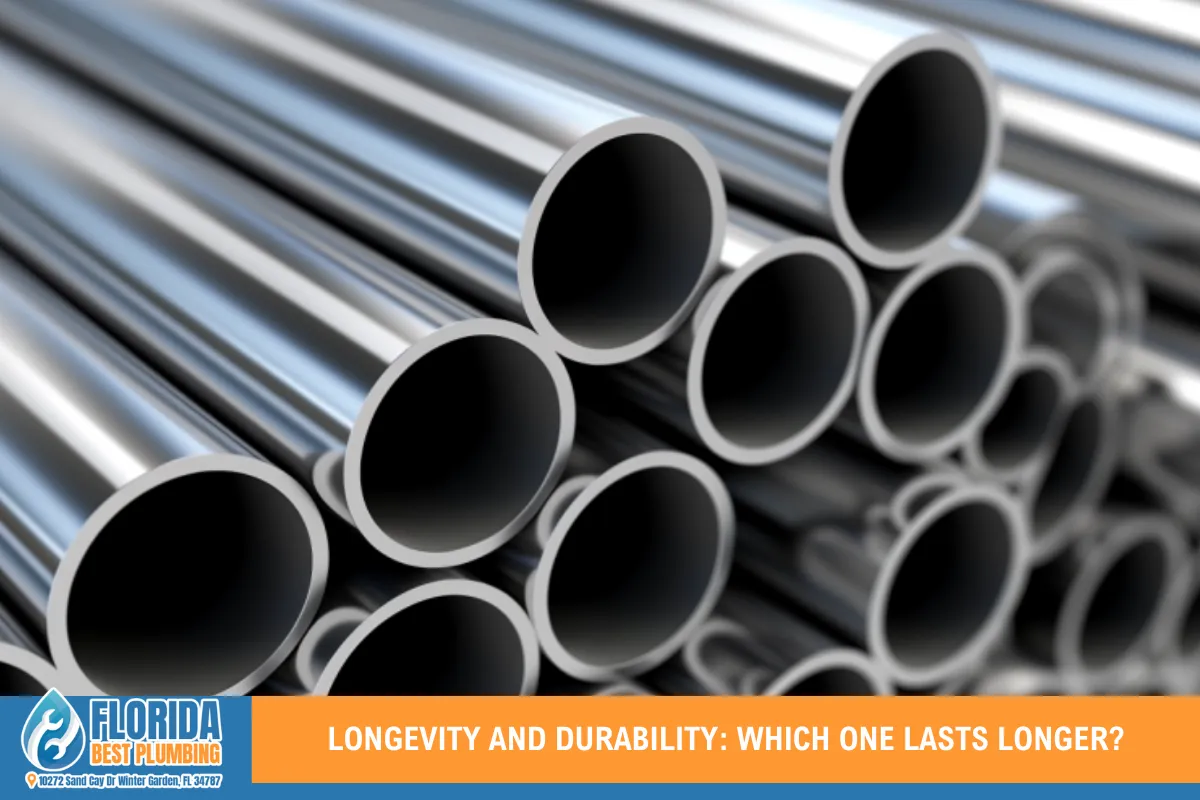
PEX Lifespan:
With proper installation, PEX can last 40 to 50 years or more. It’s resistant to corrosion, scaling, and mineral deposits—key issues in Florida due to the presence of hard water.
PVC Lifespan:
PVC can also last decades, but it’s more prone to stress fractures and degradation over time, especially in areas with ground movement or outdoor exposure.
In short, PEX tends to outlast PVC, particularly in pressurized systems.
Water Quality and Safety
One concern homeowners have is how plumbing materials might affect water quality.
- PEX: Approved for use in potable (drinkable) water systems. Although some older versions had taste or odor issues, modern PEX is designed to be safe and clean.
- PVC: While safe for waste and vent lines, it’s not recommended for potable water, especially hot water, due to potential chemical leaching.
If you’re looking to upgrade the supply lines for drinking water or bathing, PEX is the safer choice in most cases.
Common Applications of PEX vs. PVC in Winter Garden Homes
Where PEX Works Best:
- Full-home repiping projects
- Remodeling or adding bathrooms/kitchens
- New construction with high water pressure needs
- Hard water conditions that cause scaling in metal pipes
Where PVC Works Best:
- Drainage, waste, and vent systems
- Outdoor irrigation
- Pool plumbing and underground drainage
- Non-pressurized systems
Each material has its place, but for everyday plumbing inside your home, PEX is often the better fit.
Cost Breakdown: Materials, Installation, and Repairs
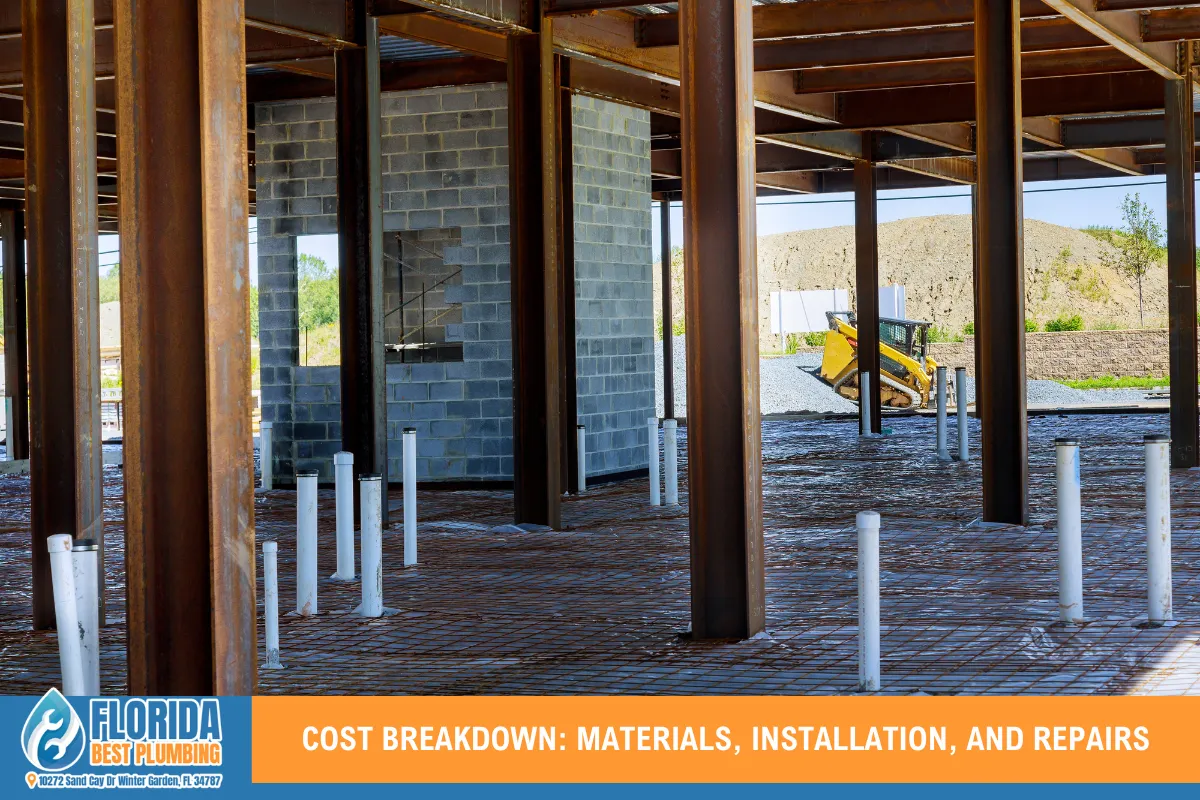
- Material Cost: PVC is generally cheaper per linear foot.
- Installation Labor: PEX usually costs less to install due to fewer joints and faster routing.
- Long-Term Repairs: PEX requires less maintenance over time. PVC joints may crack over time, especially if glued improperly or exposed to shifting soils.
So, while PVC may be cheaper upfront, PEX often pays off in the long run with fewer service calls and extended reliability.
Long-Term Maintenance Needs
PEX is relatively low-maintenance. There are fewer joints to monitor, and it resists buildup and freezing. Periodic inspections are still a good idea, but leaks and cracks are rare when the system is installed correctly.
PVC requires more attention. Its joints can fail over time, especially in areas with ground movement. And since it’s rigid, any repair usually means cutting and replacing pipe sections.
What’s Best for Winter Garden Homes?
In most residential settings in Winter Garden, PEX is often the preferred choice for indoor plumbing. Its flexibility, resistance to Florida’s humid climate, and long lifespan make it a smart upgrade for homeowners planning for the future.
PVC still plays a role, especially for waste, drain, or exterior systems. But for delivering clean, reliable water throughout your home, PEX wins in both performance and practicality.
Make the Smart Plumbing Choice in Winter Garden
Choosing the right plumbing material isn’t just a home improvement—it’s a long-term investment in comfort, safety, and peace of mind. Winter Garden homeowners have specific needs that are influenced by local weather, water quality, and building standards. After comparing all aspects—durability, installation, cost, and water safety—PEX offers a modern solution built to handle Florida’s environment.
So, if you’re considering a plumbing update or starting a new build, opt for a material that stands the test of time and the Florida heat.
Winter Garden Plumbing – Florida Best Plumbing LLC
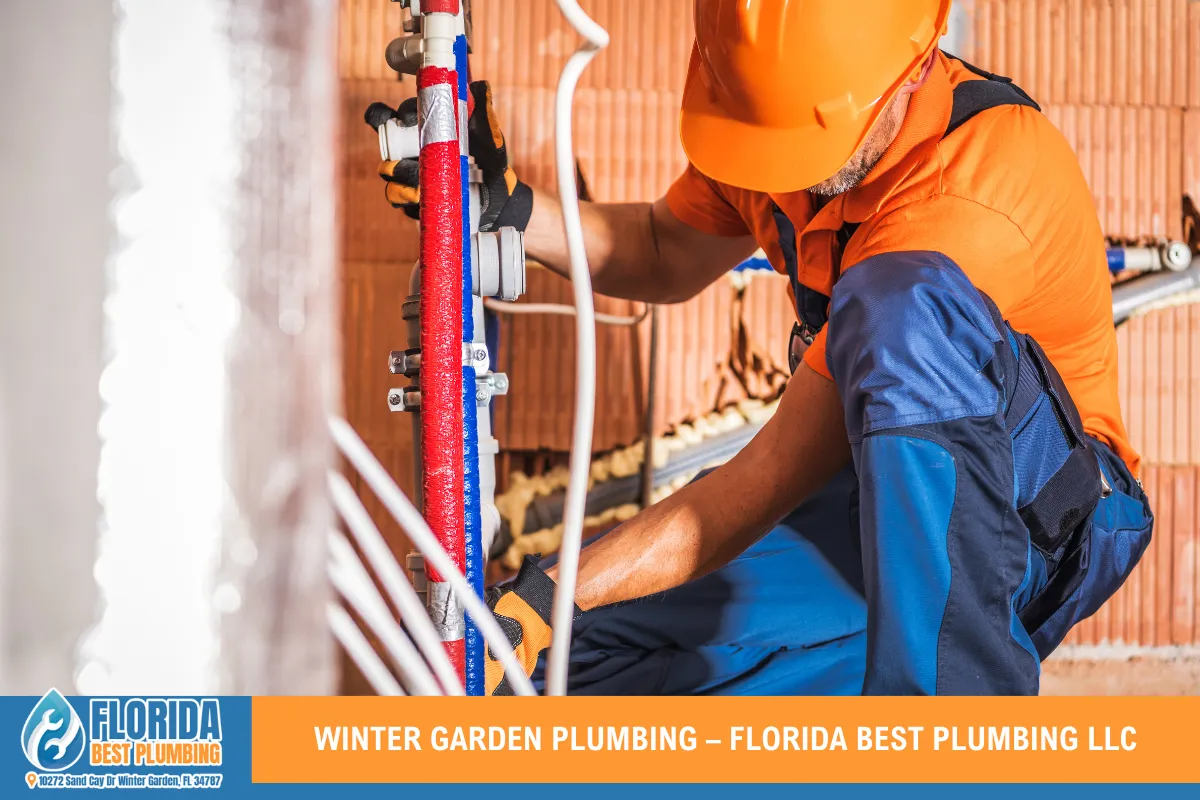
Upgrading your home’s plumbing or dealing with leaks? Florida Best Plumbing LLC is your trusted local team in Winter Garden, Florida. We understand the unique demands of Florida homes and utilize only the most reliable materials and techniques, tailored to your climate and water quality.
Need help deciding between PEX and PVC? Or looking for fast, honest repairs? We’ve got you covered. Our licensed plumbers handle everything from small repairs to full-system installations, with no unnecessary upselling or added costs.
Call us today at (407) 683-6644 —we’re available 24/7 for emergencies and same-day services.
Frequently Asked Questions (FAQ)
1. What is the safest type of pipe for drinking water in Winter Garden homes?
PEX pipes are among the safest and most commonly recommended water supply pipes for residential use today. They’re resistant to corrosion, don’t leach harmful chemicals, and meet national plumbing codes for potable water systems. PEX is also ideal for areas with acidic water, which can corrode older materials, such as galvanized pipes.
While copper pipes were the standard for decades, they can leach metal into the water supply under certain conditions, especially when exposed to acidic water for long periods. Galvanized pipes are outdated and may introduce lead or rust into drinking water, raising health issues over time.
PVC pipes and ABS pipes are typically used for drainage systems. They aren’t suitable for hot water or direct drinking water lines. The braided pipe is often used in short-term, flexible connections (such as under sinks), not for full-supply systems.
Always consult local plumbing codes to ensure your installation meets Winter Garden’s regulations for safe drinking water.
2. How do PEX pipes compare to copper and PVC for long-term use?
PEX pipes are extremely durable and flexible, making them ideal for long-term use in modern residential plumbing. They expand with temperature changes, resist mineral buildup, and are less likely to burst during rare Winter Garden cold snaps. When installed with cinch clamps or crimp rings, PEX connections are tight, secure, and leak-resistant.
Copper pipes are still considered reliable, but they’re more expensive, harder to install, and susceptible to corrosion when exposed to acidic water. In older homes with copper or galvanized pipes, replacing them with PEX can significantly improve flow efficiency and water quality.
PVC pipes are another affordable option, mainly used for cold water or waste lines. However, they aren’t approved for all plumbing systems and can’t withstand hot water, limiting their use. In contrast, PEX handles both hot and cold water well and complies with most modern plumbing codes.
For Winter Garden homes, PEX typically offers the best performance and value.
3. Is it safe to use PVC pipes for drinking water in Florida?
PVC pipes are widely used in plumbing, but they’re not recommended for hot water supply lines or drinking water in residential homes. While they are corrosion-resistant and easy to install, they can degrade under high temperatures and potentially release chemicals into the water. This becomes a health risk, especially if the pipe is exposed to heat over time.
Instead, PEX pipes are generally preferred for drinking water systems. They’re flexible, resistant to temperature fluctuations, and pose fewer long-term health issues when installed by current plumbing codes. For homes with older galvanized pipes or copper pipes that show signs of corrosion, upgrading to PEX improves both safety and water quality.
PVC may still be used in cold water lines or for exterior irrigation systems, but it should never be used as a substitute for certified water supply pipes for potable water. Always consult your local Winter Garden plumber for code-compliant, safe installation advice.
4. What are the common health issues linked to old plumbing materials?
Older plumbing systems—especially those using galvanized pipes or outdated materials—can present serious health risks over time. Galvanized pipes, which were once standard, may contain lead or become clogged with rust and sediment. These contaminants can enter your water supply, posing long-term health risks, particularly for children and individuals with weakened immune systems.
Lead exposure from corroded pipes can affect brain development, kidney function, and blood pressure. Copper pipes, while generally safe, can also leach metals into your water if the home has acidic water, which is common in certain areas of Florida.
Newer materials, such as PEX pipes and braided pipe connections, are safer alternatives. PEX doesn’t corrode and is tested for chemical safety. PVC pipes and ABS pipes, although commonly used in drainage systems, should never be used to carry drinking water.
To stay safe, replace aging plumbing and follow modern plumbing codes that mandate safer water supply pipes in homes, such as those in Winter Garden.
5. Are PEX pipes legal and reliable under Winter Garden plumbing codes?
Yes, PEX pipes are legal and approved for residential use under most plumbing codes in Winter Garden. They are commonly used for both hot and cold water supply systems due to their flexibility, durability, and resistance to hard or acidic water. Their ability to expand and contract with temperature changes makes them ideal for Florida’s climate, especially in areas like Winter Garden, where unexpected cold fronts can happen.
PEX is also compatible with cinch clamps and crimp rings, which help create leak-free connections. It meets strict building and health standards, offering reliable performance with minimal maintenance. In many cases, switching from older copper pipes or galvanized pipes to PEX can save homeowners money while boosting water flow and system efficiency.
It’s important to use certified fittings and ensure all installations comply with local plumbing regulations. When installed properly, PEX can last for decades without introducing health risks or structural problems. Read more: Sink Repair Guide: How Professional Plumbers Fix Leaks, Clogs, and Damaged Fixtures
What Happens if I Delay Water Heater Replacement in Winter Garden, FL?
Water Heater Replacement in Winter Garden, FL [...]
Water Heater Replacement in Winter Garden, FL: Can an Old Water Heater Become a Safety Hazard?
Why Aging Water Heaters Are More Than [...]
Windermere Plumber: What is Involved in Repiping a Home?
A Fresh Start: Why Repiping Matters for [...]
Windermere Plumber: How Long Does It Take to Install a Water Heater?
Uncovering the Truth About Water Heater Installation [...]
Do I Need a Windermere Plumber to Replace a Toilet?
Why Hiring a Windermere Plumber Matters for [...]
Winter Garden Plumber: How Do Plumbers Fix a Clogged Kitchen Sink?
If you need a plumber in Winter [...]


